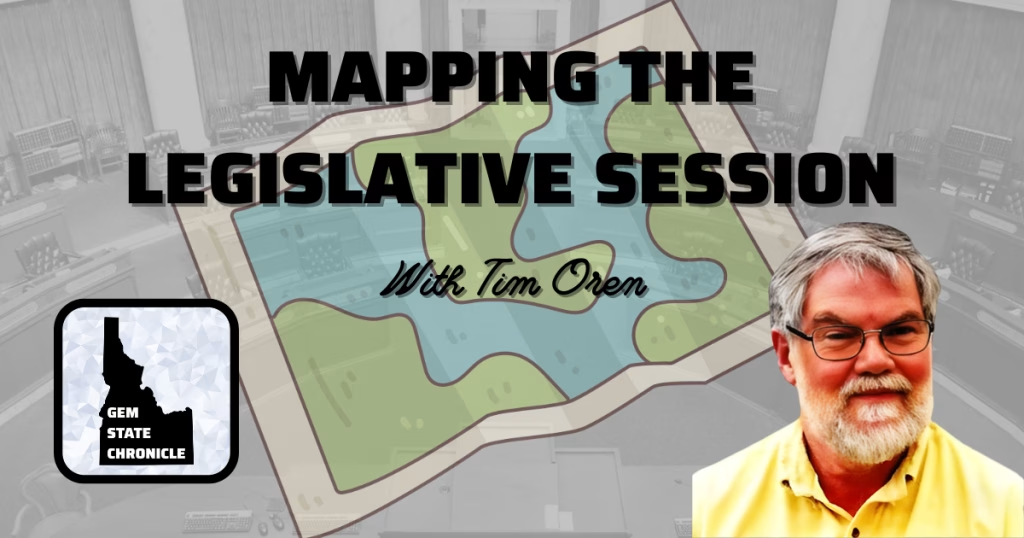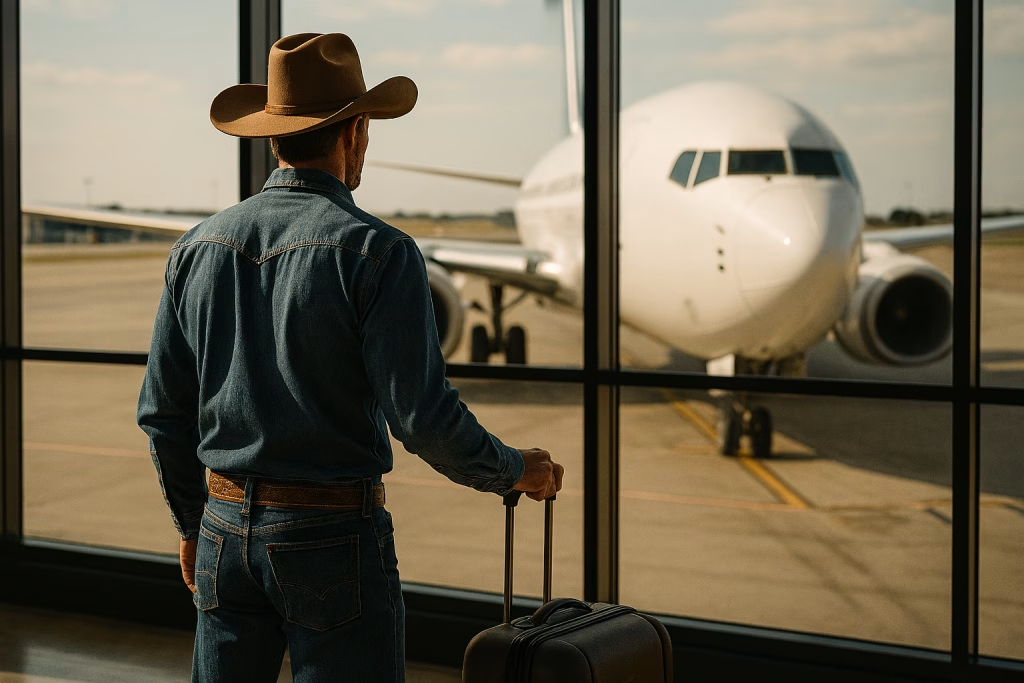The press is an integral part of Western Civilization. Societies that expect their citizenry to be educated and informed must provide for independent sources of information about the world. The invention of the printing press allowed private citizens to cheaply distribute information far and wide, often outside the constraints of government control.
Historians consider the first true newspaper to be the German-language Relation aller Fürnemmen und gedenckwürdigen Historien (Account of all distinguished and commemorable stories) which was published in Strasbourg by Johann Carolus starting in 1605. The first continuously-published newspaper in North America was the Boston News-Letter in 1704. The idea of a free press was so important to our Founding Fathers that they explicitly protected it from government censorship in the 1st Amendment to the Constitution.
Early newspapers made no attempts to appear unbiased. Most big cities in early America had two major newspapers — one for each party. Political campaigns were often proxy wars fought in the editorial pages of various newspapers. By 1898, news media was so powerful that it was able to start a war between the United States and Spain.
Radio and television changed the game. Trusted voices like Edward R. Murrow and Walter Cronkite brought world events directly into American living rooms. By the 1960s, three major news networks dominated the airwaves, delivering stories that, for many, became the unvarnished truth. Every night, Cronkite would sign off with his iconic phrase: “And that’s the way it is.”
Even newspapers faced consolidation. Local news outlets such as the Idaho Statesman were bought up by national conglomerates starting in the 1960s. The rise of Craigslist and then Facebook Marketplace eviscerated the revenue base of local newspapers, contributing to their decline and consolidation. Today, a small handful of big corporations control the legacy news media in America. Yet now there are alternatives. More people get their information about the world from social media or podcasts than from newspapers or network news broadcasts.
There are still some things that local newspapers remain good at, such as sports reporting and human interest stories. Outlets like the Idaho Statesman and the Idaho Press enjoy name recognition that newer platforms like the Idaho Dispatch and the Gem State Chronicle have yet to achieve. With larger staffs and established beats, they can provide broader coverage. However, the trust once inherent in these legacy platforms is rapidly eroding. Each Baby Boomer loyal to the local paper is being replaced by a Zoomer who is just as likely to get their news from TikTok.
Of course, media bias is the elephant in the room. Conservatives have long complained that traditional news media has a leftist bias, both in how it covers stories and in which stories it chooses to cover. You know the drill. What is more interesting to me is how these outlets have wrapped themselves in ideological bubbles which prevent the very self-examination that is necessary to adapt to a changing world.
In 2016, only two of the nation’s top 100 newspapers endorsed Donald Trump for president. It must have come as a complete shock when he won the election. Yet rather than ask themselves how they had become so out of touch with the American people, journalists doubled down, amplifying the nonsensical Russia collusion hoax and painting themselves as brave rebels fighting an evil authoritarian regime.
Rather than reconnecting with the American people, they instead reinforced their bubble.
I recently had the opportunity to meet the editor of the Idaho Statesman as well as one of his newest reporters. I found both to be amiable, professional, and dedicated to doing a good job. However, I worry about their bubble. Working in downtown Boise, a very blue enclave in a very red state, surely must skew their perspectives about Idaho. When you look at the editorials and endorsements coming out of the Statesman, you see a narrative that sounds more like San Francisco or Portland than the Gem State.
For example, the Statesman heavily promoted Proposition 1, which lost by nearly 40%. Why is Idaho’s newspaper of record preaching to a choir that is less than one-third of the electorate? When the results started coming in on Election Night, did the editors, journalists, and opinion columnists pause for self-reflection, or did they chalk it up to the people of Idaho simply being wrong?
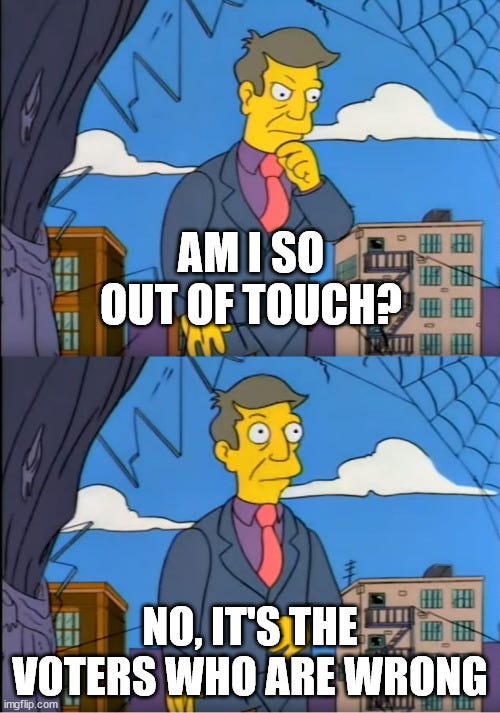
I believe that traditional news media faces a reckoning. Stuck between declining revenues and ideological positions that are increasingly at odds with the American people, journalists have to decide what they want to be in the near future. Will they be objective reporters, or activists? Will they chase clickbait, or try to regain the trust of the people? Will they speak truth to power, or use power to harass the people?
Amazon founder Jeff Bezos, who purchased the venerable Washington Post in 2013, sees the same apocalypse on the horizon. After scuttling his paper’s expected endorsement of Kamala Harris for president, Bezos wrote an op-ed explaining why things must change:
In the annual public surveys about trust and reputation, journalists and the media have regularly fallen near the very bottom, often just above Congress. But in this year’s Gallup poll, we have managed to fall below Congress. Our profession is now the least trusted of all. Something we are doing is clearly not working.
…
Lack of credibility isn’t unique to The Post. Our brethren newspapers have the same issue. And it’s a problem not only for media, but also for the nation. Many people are turning to off-the-cuff podcasts, inaccuratesocial media posts and other unverified news sources, which can quickly spread misinformation and deepen divisions. The Washington Post and the New York Times win prizes, but increasingly we talk only to a certain elite. More and more, we talk to ourselves. (It wasn’t always this way — in the 1990s we achieved 80 percent household penetration in the D.C. metro area.)
Bezos later announced that he would seek to bring more conservative voices to the Post’s editorial board. Keep in mind that the token “conservative” at the Post since 2010 has been Jennifer Rubin, who after the election said “It is 1933. Hitler is in power.”
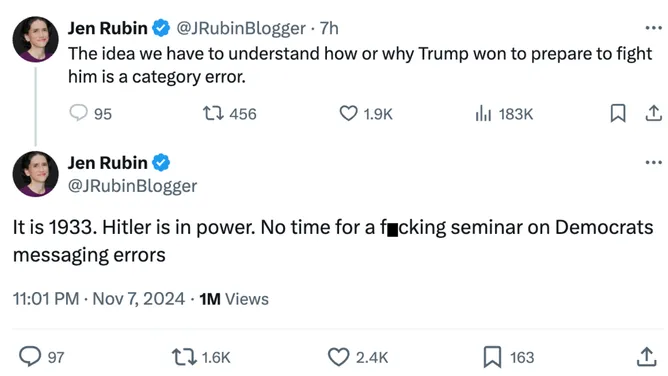
If Jeff Bezos wants to restore credibility to the Washington Post he must do more than add another token conservative. Even straight news journalists tend to filter everything through a far-left worldview, which creates slanted coverage. Consider that when former governor Butch Otter came out in favor of Prop 1, it was headline news in every major Idaho paper, yet when Gov. Brad Little came out against it, you had to go searching. By assuming a left-wing worldview, reporters completely misunderstand what it means to be objective.
If you’re a journalist and you look around at your colleagues, friends, family, and see ideological orthodoxy, it’s easy to forget that there are tens of millions of Americans with vastly different views. If you’re pinning the ideological median within a group that consists of journalism graduates from Columbia, Democratic state legislators, and late-night TV hosts, it will look a lot different than the median of the American people as a whole.
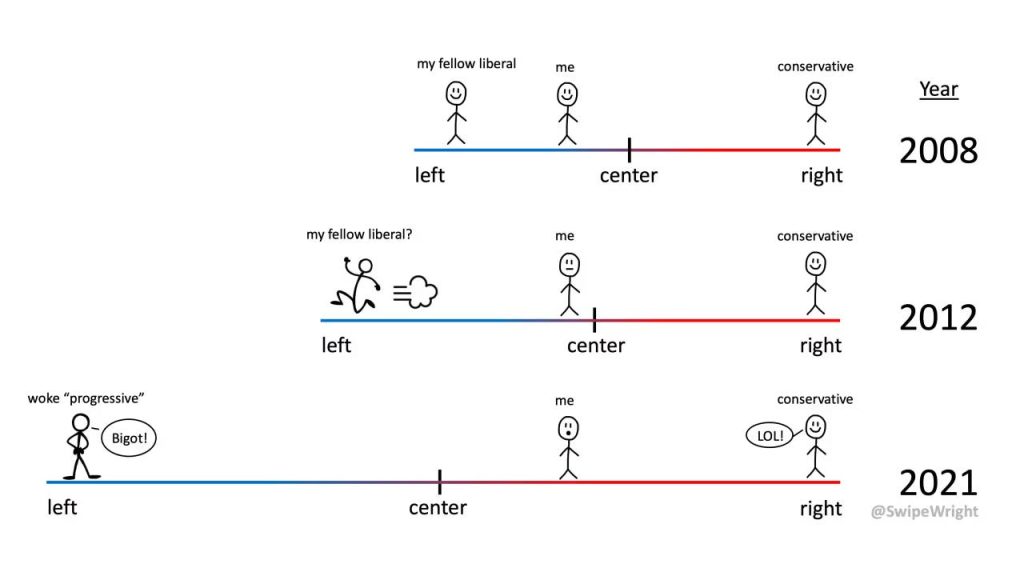
When seen from the perspective of the editorial board of the Statesman, for example, anyone to the right of Gov. Little is a radical extremist. The big Idaho newspapers routinely endorse Democrats for nearly every elected position, yet our state government is 100% Republican and our next Legislature will be 86% Republican. At what point do newspaper editors and staff admit they’re completely out of touch with the people of Idaho?
Recall that when the Eagle Library Board voted to relocate two dozen books, most local media outlets were more concerned with unmasking the citizen who filed the request than fairly examining whether or not such books were indeed inappropriate for children, or even obscene. (Conversely, the Statesman’s newest reporter did a fair job with the story in her recent article.)
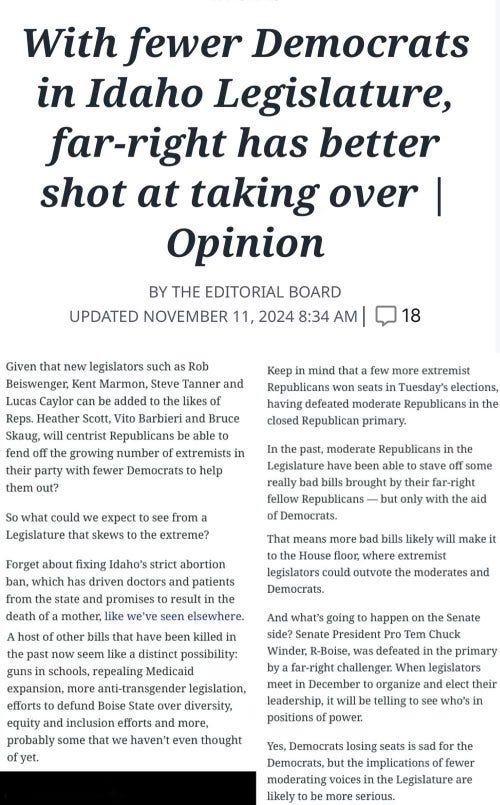
I don’t claim to be objective. Like everyone else, I have my own perspective, worldview, and biases. However, I strive to be fair. I work to present all sides of an issue, even when it irritates those on both the left and the right by sharing arguments that challenge their positions. I don’t believe the people of America, or of Idaho, are looking for pure objectivity — I don’t think such a thing is even possible. What people want is fairness. They want the truth, delivered without skewing or slanting, and free of lies, whether by commission or omission.
Jeff Bezos’ decision to halt candidate endorsements at The Washington Post is a step in the right direction. As he noted in his op-ed, no one decides how to vote based on a newspaper’s endorsement; all it does is create a perception of bias. Perhaps Idaho’s legacy news media should consider following his lead. Unchecked media bias has reached its breaking point, and traditional news outlets must now determine what role they will play as we enter the second quarter of the 21st century.
Gem State Chronicle is a reader-supported publication. To receive new posts and support my work, consider becoming a free or paid subscriber.
About Brian Almon
Brian Almon is the Editor of the Gem State Chronicle. He also serves as Chairman of the District 14 Republican Party and is a trustee of the Eagle Public Library Board. He lives with his wife and five children in Eagle.




